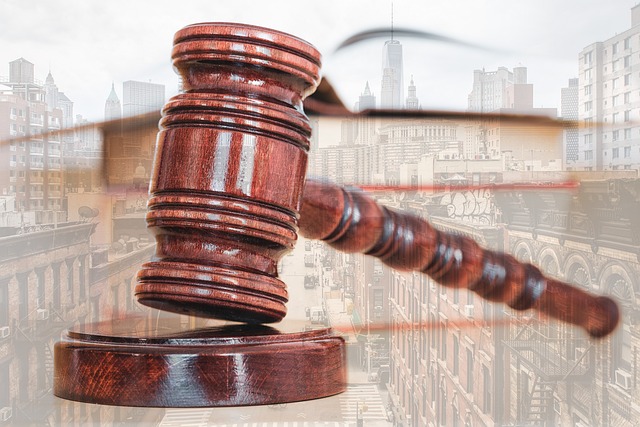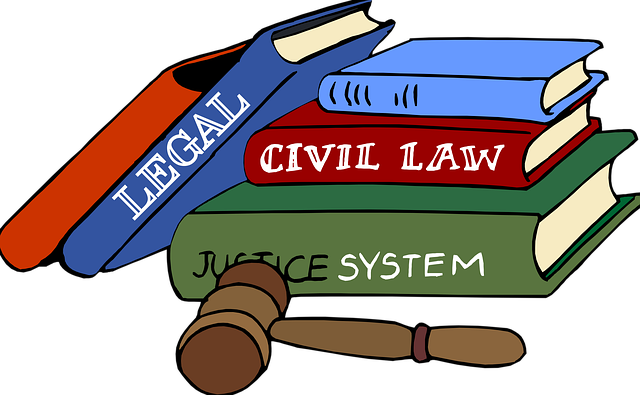Securities class action lawsuits are powerful legal tools that protect investors from fraud and unfair practices, with notable historical cases like In re IBM Securities Litigation (1995) and In re Enron Securities Cases (2006) demonstrating their impact. Famous class action lawsuits in history, such as Brown v. Board of Education (1954) and United States v. P.F. Bond Metal & Loc. 5 (1946), show how these cases drive significant societal changes in civil rights and labor laws. Successful securities class actions require strategic legal expertise, robust evidence, and understanding of intricate financial details, impacting both investors and corporations. Evolving technology and shifting legal landscapes, alongside growing activism for consumer rights and environmental concerns, position securities class action litigation for continued growth and influence.
Securities Class Actions: Uncovering the Power of Collective Legal Stand. Discover the intricate world of class action litigation, where investors unite to hold corporations accountable for securities fraud and misconduct. This comprehensive guide explores key concepts, from defining these actions to understanding their historical impact. Delve into iconic cases that shaped legal precedents, while learning about the essential elements required for successful claims. Uncover the far-reaching consequences of victories and defeats, and gain insights into emerging trends in this dynamic field, including a look at famous class action lawsuits in history.
- Understanding Securities Class Actions: Definition and Basic Concepts
- Famous Class Action Lawsuits in History: A Look Back at Notable Cases
- Key Elements and Requirements for Successful Securities Class Actions
- The Impact and Consequences of Winning or Losing a Securities Class Action
- Future Trends and Challenges in Securities Class Action Litigation
Understanding Securities Class Actions: Definition and Basic Concepts

Securities class actions are a powerful legal tool designed to protect investors from fraudulent or unfair practices in the securities market. When a group of investors shares similar claims against a company, they can band together in a class action lawsuit. This collective approach allows for more efficient and effective enforcement of securities laws. In a typical case, all stages of the investigative and enforcement process—from initial filing to settlement negotiations and jury trials—are handled on behalf of the entire group, often resulting in substantial recoveries for corporate and individual clients alike.
Some of the most famous class action lawsuits in history have reshaped industries and protected investors’ rights. For instance, cases like In re IBM Securities Litigation (1995) and In re Enron Securities Cases (2006) not only provided significant financial redress but also set precedents for future litigation. These landmark decisions serve as a testament to the importance of class actions in holding corporations accountable for misconduct and ensuring fair practices in the securities industry.
Famous Class Action Lawsuits in History: A Look Back at Notable Cases

In the annals of legal history, famous class action lawsuits stand as beacons of justice, demonstrating the power of collective action to hold powerful entities accountable. One of the most iconic cases is Brown v. Board of Education (1954), which led to the complete dismissal of all charges against racial segregation in education, marking a pivotal moment in the civil rights movement. This landmark decision not only achieved extraordinary results but also reverberated through society, reshaping educational policies and fostering a new era of equality.
Another notable example is United States v. P.F. Bond Metal & Loc. 5 (1946), where a class action lawsuit played a crucial role in avoiding indictment for workers exploited under the National Labor Relations Act. This case set a precedent by establishing that unions could bring collective actions on behalf of their members, ensuring fair labor practices and protecting workers’ rights. These famous class action lawsuits continue to shape legal landscapes, inspiring future generations to fight for justice and achieve significant societal changes.
Key Elements and Requirements for Successful Securities Class Actions

Successful securities class actions require a careful blend of legal strategy, robust evidence, and a deep understanding of the intricate details involved. Key elements include demonstrating violations of securities laws, proving damages with specificity, and establishing that the defendant acted negligently or with fraudulent intent. These cases often involve complex financial transactions and extensive document review, necessitating skilled attorneys who can navigate the nuances of both securities regulations and general criminal defense strategies.
Notable examples, like famous class action lawsuits in history, highlight these requirements. For instance, high-profile cases against white-collar criminals accused of economic crimes have shown the importance of thorough investigations and meticulous documentation. By carefully scrutinizing actions that avoid indictment and focusing on compensating victims, these lawsuits set precedents for holding responsible parties accountable. Effective representation in such actions demands a balanced approach, considering both the client’s interest in securing damages and the broader implications for corporate governance and legal precedents.
The Impact and Consequences of Winning or Losing a Securities Class Action

Winning a securities class action can have profound implications for both investors and corporations. When investors prevail, it sends a powerful message that corporate misconduct will not be tolerated, potentially deterring future violations. The consequences often include substantial monetary compensation for harmed parties, which can restore their financial positions and provide a measure of justice. Moreover, successful lawsuits can lead to significant changes in corporate governance practices, ensuring better transparency and accountability in the future.
On the other hand, losing such cases can have severe repercussions for companies. It may result in heavy financial burdens from damages and legal fees, potentially putting smaller businesses at risk of bankruptcy. More importantly, a loss can cast a long shadow over a company’s reputation, impacting its ability to attract investors and conduct future business dealings. Famous class action lawsuits in history, like those against major corporations for environmental damage or consumer fraud, have showcased the power of these legal battles, with their unprecedented track records shaping corporate strategies and legal precedents.
Future Trends and Challenges in Securities Class Action Litigation

As we move forward, Securities Class Action Litigation is poised for evolution, driven by technological advancements and shifting legal landscapes. The digital transformation has opened new avenues for gathering evidence and facilitating communication between plaintiffs and their legal representatives, enhancing accessibility and efficiency in complex cases. With the rise of social media and online forums, uncovering relevant information and identifying potential class members has become more feasible.
Moreover, recent Famous Class Action Lawsuits in History have set precedents that will continue to shape future litigation strategies. The increasing awareness and activism surrounding consumer rights, environmental concerns, and corporate governance issues suggest a growing emphasis on collective action. However, challenges remain, including the complexity of managing diverse caseloads and the need for consistent application of legal principles across the country. Despite these hurdles, the successful outcomes achieved through class action lawsuits speak to their effectiveness in holding corporations accountable and securing significant redress for harmed investors, showcasing an unprecedented track record for his clients.
Securities class actions play a pivotal role in safeguarding investors’ rights and ensuring corporate accountability. By examining famous class action lawsuits in history, we gain insights into the power of collective action and its impact on market practices. Understanding the key elements required for successful cases is essential for investors and legal professionals alike. The consequences of these lawsuits shape corporate governance and market integrity, while future trends present both challenges and opportunities for efficient dispute resolution. As we navigate an evolving legal landscape, staying informed about securities class actions is crucial for upholding fair and transparent business practices.






